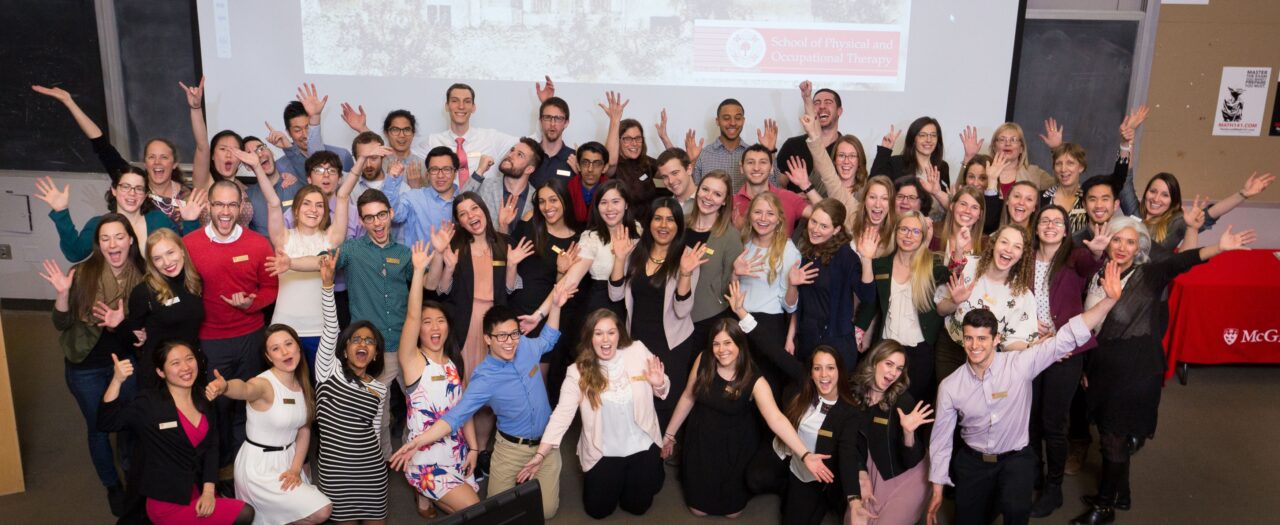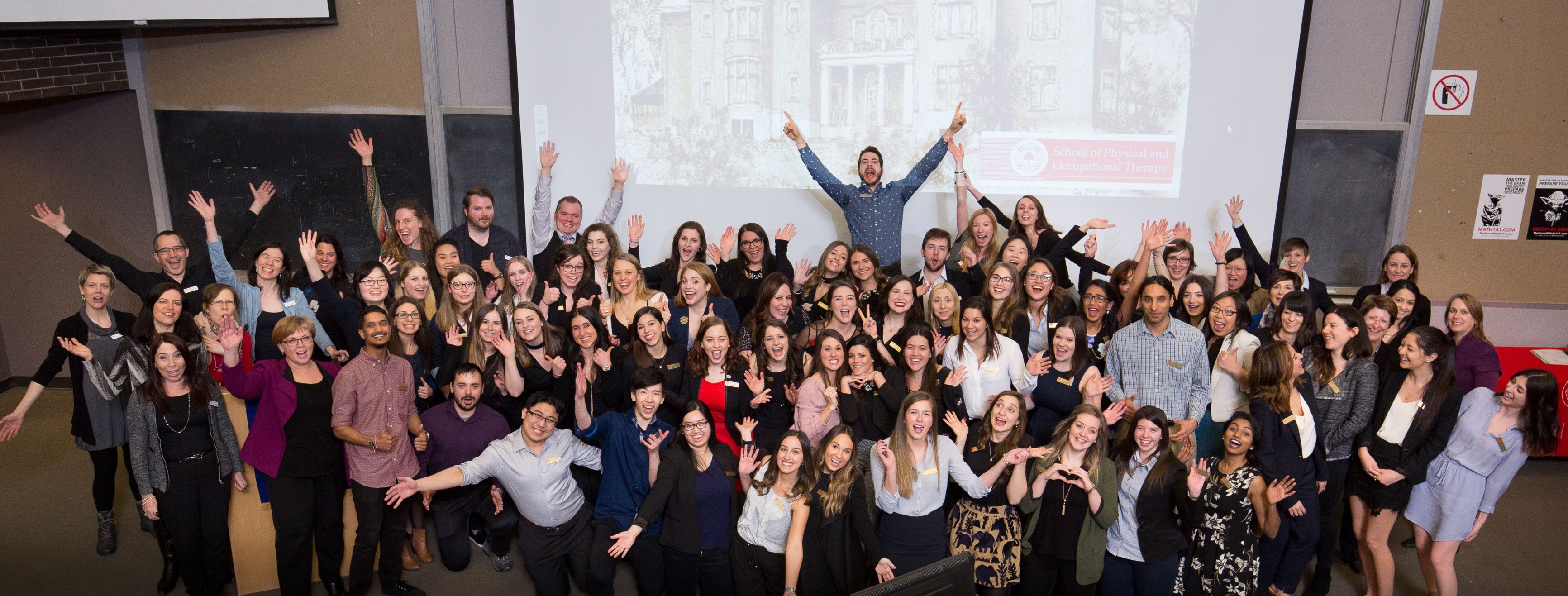
On April 7, 2017, McGill’s School of Physical and Occupational Therapy (SPOT) held its annual Name-Tag ceremony, as third-year students gathered in the R. Howard Palmer Amphitheatre at the McIntyre Medical Building. The ceremony is an important milestone in the students’ paths marking the transition from their undergraduate studies to the beginning of their clinical fieldwork, before many go on to graduate studies.
With a theme this year of innovation, the students heard first from Dr. Laurie Snider, Interim Director of SPOT. “At SPOT, we excel in offering educational excellence, partnerships with our community and research innovation,” noted Dr. Snider. “Not only are our students taught important foundation knowledge, assessment tools and practical skills, they are also encouraged to partner with researchers to find creative and innovative solutions to clinical questions. All of this while staying up-to-date with advances in rehabilitation research. Our students are consistently exposed to the process that fosters innovation including key concepts such as collaboration/partnerships, best practices and advocacy. No matter where they practice, these elements of teamwork, equity and quality care will be central to their development as a therapist and to their impact in the years to come. SPOT is proud to offer students opportunities to become innovators for tomorrow.”
Associate Vice-Principal and Vice-Dean (Health Affairs) at the Faculty of Medicine, Dr. Sam Benaroya then took students on a stroll down memory lane as he recalled receiving his

first white coat with its deep pockets. Dr. Benaroya told the students that though their name-tags may be small their significance is deep as well.
Before receiving their nametags, students also heard from Lucie Montpetit (OT) who started her private practice focused on developing rehab programs for people suffering from myalgic encephalomyelitis and from Cindy Gauthier (PT) co-founder of the Neuro-concept center which is a rehabilitation and adapted physical activity center for individuals with neurological impairments.
Speaking of how acting in innovative ways has had a positive impact in both of their practices, Montpetit told students that as they embark on their own professional careers and gain experience, they will find that, “People need you. You will be rendering them an invaluable service. You will find that being a catalyst for change in their lives is tremendously rewarding and satisfying. If you are seeking a solution to a problem, examine it from different perspectives. Think outside the box and be creative. Approach a problem as a challenge to learn and to enrich peoples’ lives including your own. Also, remain humble, because today’s truth will be only a partial truth tomorrow in a wider context.” Gauthier echoed this advice, telling students, “Do not be afraid to question your practice and the one of your colleagues. Seek for better practices, better technologies. Rehabilitation research is going really fast and many technologies are emerging. Do not be afraid to try, do not be afraid of change. Of course this will require extra efforts and learning but this will be beneficial for your patients and for you.
Jaclyn Stevenson and Vi Ma spoke on behalf of the occupational therapy and physical therapy cohort of students respectively and Jenujah Vadivel, POTUS President was presented with the Student Life Award.
April 13, 2017
